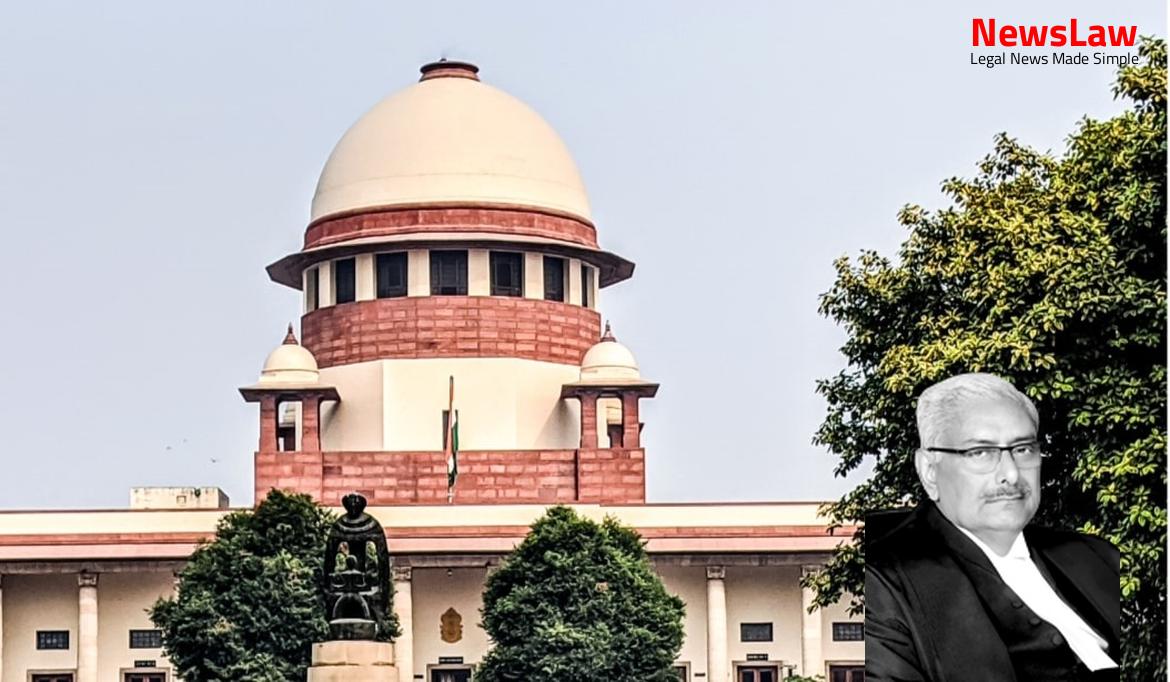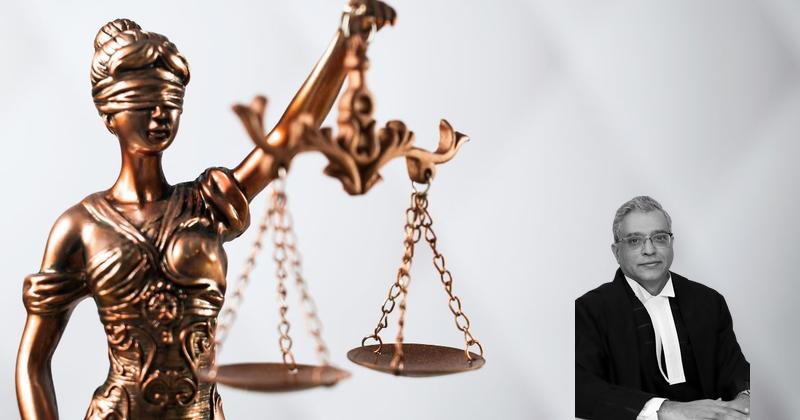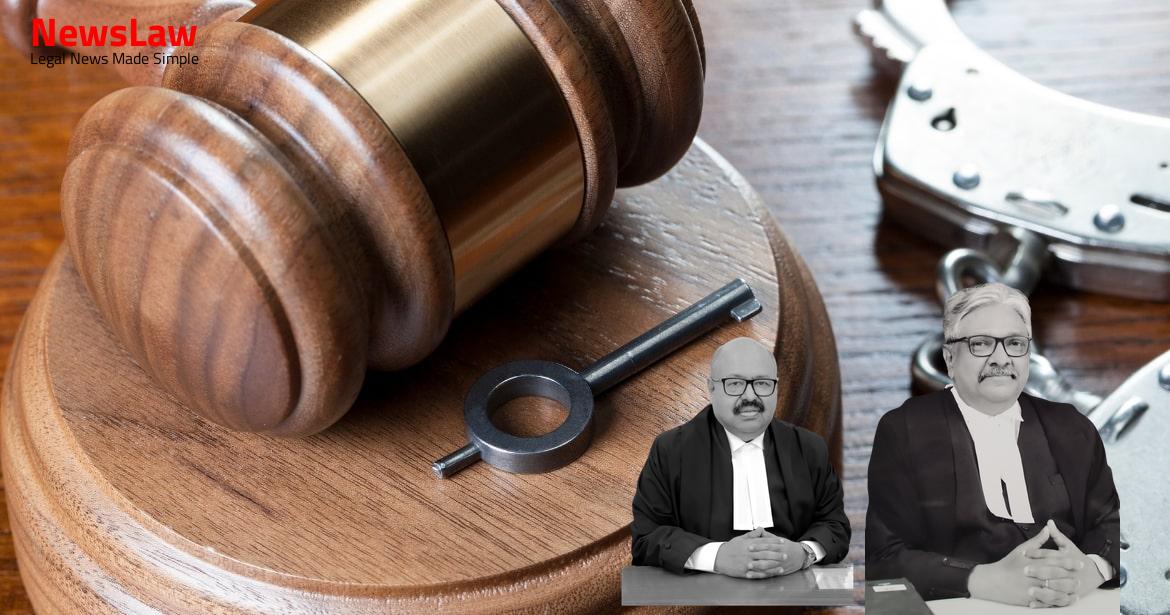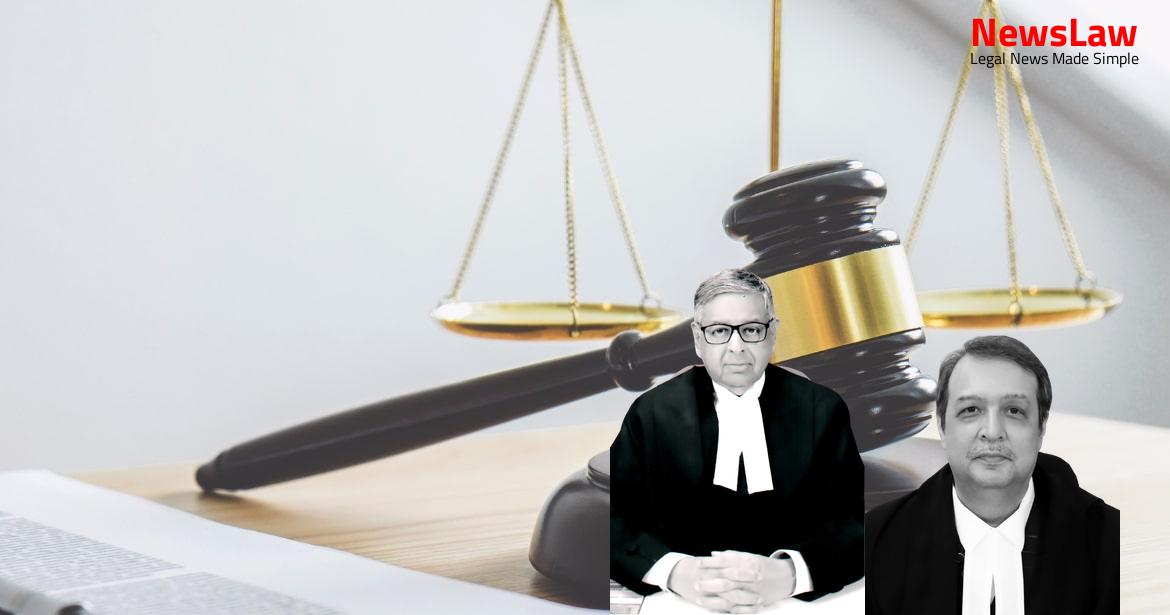Explore the comprehensive legal analysis undertaken by the court regarding reservations and caste classification in a recent case. The evaluation delves into the intricacies of constitutional provisions and the importance of preferential treatment within Scheduled Castes/Scheduled Tribes. Stay tuned to uncover the nuanced legal perspectives on social justice and equality. #LegalAnalysis #ConstitutionalLaw #SocialJustice
Facts
- The S.L.P. against the dismissal of the case was filed by the Court
- The Court dismissed the S.L.P. on 10.3.2008
Also Read: Legal Analysis of Change in Law Compensation in Power Purchase Agreements
Issue
- Can a State make categorization of reservations?
- Exhaustiveness of clause (4) in defining reservations.
Also Read: Fair Investigation in Criminal Cases: Legal Analysis
Arguments
- Argument made by the petitioner that giving preference does not interfere with the list of scheduled castes as notified under Article 341
- Emphasis on distribution of benefits to more backward and smaller groups selectively in planning and development
- Argument against further classification of Scheduled Castes
- Citing Dr. Ambedkar’s speech on the purpose of Articles 341 and 342
- Discussion on the powers of Parliament to exclude or include castes in the list
- Support for the constitutionality of Section 4(5) of the Punjab Act
- Reference to the principle of social backwardness and the creamy layer in reservation policies
- Opposing the decision in E.V. Chinnaiah, stating it has adverse effects on public interests and equality principles
- Importance of harmoniously interpreting Articles 14, 15, 16, 341, and 342
- Criticism of E.V. Chinnaiah for not considering rational allocation of reservation benefits among castes
- Reference to Justice Ramachandra Raju Committee’s findings on the most backward communities
- Discussion on constitutional rights and reservation benefits among specified groups
- Arguments against reclassification based on E.V. Chinnaiah decision and its impact on equality principles
- Citing reports indicating non-homogeneous nature of Scheduled Castes and need for fair representation
- Emphasis on the power of the State in preference allocation under Articles 341(2) and 342(2)
- Citing the Justice Lokur Committee Report on the need to aid smaller, more backward communities
- The respondents rely on the observations of Chinnappa Reddy, J in Vasanth Kumar, 1985 Supp SCC 714
- Chinnappa Reddy, J suggested a classification into Backward Classes and More Backward Classes if both classes are far behind the most advanced classes
- The purpose of this classification would be to help the More Backward Classes
- The classification would prevent those of the Backward Classes who are slightly more advanced from taking all the seats
- The counsel for the respondents question the correctness of this holding
Also Read: Preservation and Maintenance of Shri Mahakaleshwar Temple
Analysis
- The power given to Parliament to modify the notification under Article 341(1) is final except for modification by law.
- Before issuing a public notification under Article 341(1), an elaborate inquiry is required to be made for social justice.
- The making of notification by the President is final except for modification by law as provided by clause (2) of Article 341.
- No tinkering with the lists under Articles 341 and 342 is permissible.
- Classification and preferential treatment within Scheduled Castes/Scheduled Tribes are permissible without depriving any caste benefit of reservation.
- Legal fiction must be given full effect as laid down in specific case law.
- The ultimate touchstone of constitutionality is the Constitution itself.
- New changes and modifications of power may be indispensable to effectuate the general objectives of the charter.
- Specific reservations are required to bring about real equality of opportunity between unequals and must be ensured by the State.
- The assignment of an important role to ethical principles in behavioral relation of society ranges from various scholars and jurists.
- Articles 15(4) and 16(4) by themselves are substantive and enabling provisions.
- There are inter-se distinctions and inequalities within Scheduled Castes/Scheduled Tribes in their ability to access education and employment, afford healthcare, and enjoy the same social status.
- The decision in E.V. Chinnaiah deserves to be revisited by a larger Bench.
- State has the authority to review the classification of socially and educationally backward classes and decide if they continue to fall under that category.
- The State is not bound to classify a particular group as socially and educationally backward for all times.
- The President has the power to specify Scheduled Tribes for a State or Union territory.
- The kind of special provisions to be made for a particular class is at the discretion of the State, based on the circumstances.
- The Punjab Act was enacted under Article 16(1) and 16(4) in conjunction with Articles 245 and 246.
- The President can specify socially and educationally backward classes for a State or Union territory.
- The Parliament can include or exclude from the Central List of socially and educationally backward classes, but once specified, a notification cannot be varied.
- The President can specify Scheduled Castes for a State or Union territory, while Parliament has the authority to include or exclude from the list.
- The President can designate tribes or tribal communities for the purposes of the Constitution.
- The judgement discusses the redistribution and reallocation of resources and opportunities for equal justice as mandated by the constitution.
- The concept of caste as a horizontal segmental division of society is analyzed, recognizing the need for legislative measures to eliminate the caste system’s negative effects.
- The High Court’s opinion regarding the applicability of the exclusion of the creamy layer to Scheduled Castes and Scheduled Tribes is discussed and evaluated.
- The provision of reservations under Article 16(4) for backward classes, including Scheduled Castes and Scheduled Tribes, is elaborated upon as a means to achieve social justice and upliftment.
- The legality and rationale behind sub-classification within the backward class of citizens for reservation benefits are examined, addressing the intricacies and complexities of classification within the group.
- The distinction between Scheduled Castes and Other Backward Classes is highlighted, emphasizing the need for equitable distribution of reservation benefits and the prevention of concentration of benefits in a few hands.
- The analysis delves into the criteria for identifying backward classes and the applicability of social, educational, and economic backwardness in determining reservation eligibility.
- The intricacies of the provisions of Articles 341, 342, and 342A regarding Scheduled Castes, Scheduled Tribes, and socially and educationally backward classes are explored, highlighting the constitutional mechanisms for inclusion and exclusion.
- The importance of maintaining proportionate equality and fair distribution of reservations is underscored, focusing on the need to ensure equitable representation and prevent disparities within reserved classes.
- The evaluation concludes with a call for a comprehensive understanding and application of constitutional provisions to achieve social transformation and address inequalities effectively.
- The doctrine of precedent is not applicable to the special leave petitions since they are summary proceedings.
- Reliance on judgments cited in the Special Leave Petitions is not required as they are not judgments on merit.
- Mere grant of leave does not imply agreement with the findings of the lower court.
- Special Leave Petitions are discretionary in nature and are not a pronouncement on legal issues.
- Special Leave Petitions are generally disposed of without the Court giving reasons for its decision.
- Preferential treatment through fixed quotas for adequate representation is permissible under Articles 341, 342, and 342A.
- Reservation is a vital tool for uplifting the oppressed.
- Concern that reservation benefits may not reach the most deserving.
- Interpretation of key articles like 14, 15, 16, 338, 341, 342, and 342A is crucial.
- Stare decisis respected, but court must address current social realities.
- E.V. Chinnaiah case should be reviewed by a larger bench due to constitutional amendments and evolution.
- Review of E.V. Chinnaiah not possible by a bench of same strength.
- Request to Chief Justice to assign case to a Bench of 7 Judges or more.
Decision
- Statement of relevant principles governing the doctrine of Res Judicata
- Relevance of res judicata in finality of litigation and prevention of multiplicity of proceedings
- Application of res judicata in preventing re-litigation of issues already decided by a competent court
- Consideration of judgments on the principle of res judicata in subsequent legal proceedings
Case Title: THE STATE OF PUNJAB Vs. DAVINDER SINGH (2020 INSC 512)
Case Number: C.A. No.-002317-002317 / 2011



